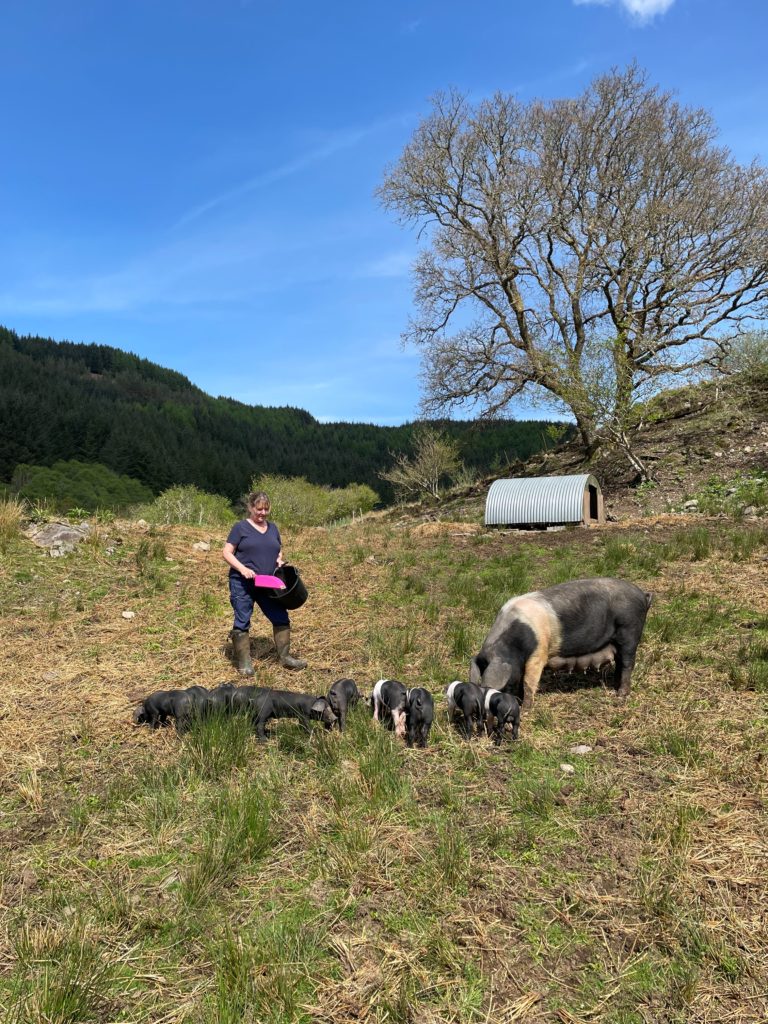The Wee Pig Company near Oban is run by Amanda Coates, who has swapped studying marine life to raise free range pigs instead.
Initially, she studied Marine Environmental Science at Plymouth Polytechnic, then a Masters at Edinburgh University in Water Management – and spent three months in Oban studying worms for her dissertation.
Luckily, two guys she worked with decided to set up their own company and they needed some temporary help, so she came back for six months and “I’ve been here ever since”.

She spent much of her childhood abroad in Singapore, Brazil and Fiji as her father was in the Merchant Navy.
As a child in Brazil, she was fluent in Portuguese but now “I can’t remember a word of it apart from the chorus of the national anthem”.
When not overseas the family were based near Bristol and, after school she wanted to become a marine biologist, inspired by Jacques Cousteau.
However, instead of the clear waters of the Caribbean, she ended up analysing worms to measure the extent of pollution under fish cages and monitoring the effects of dumped sewage in the Clyde.
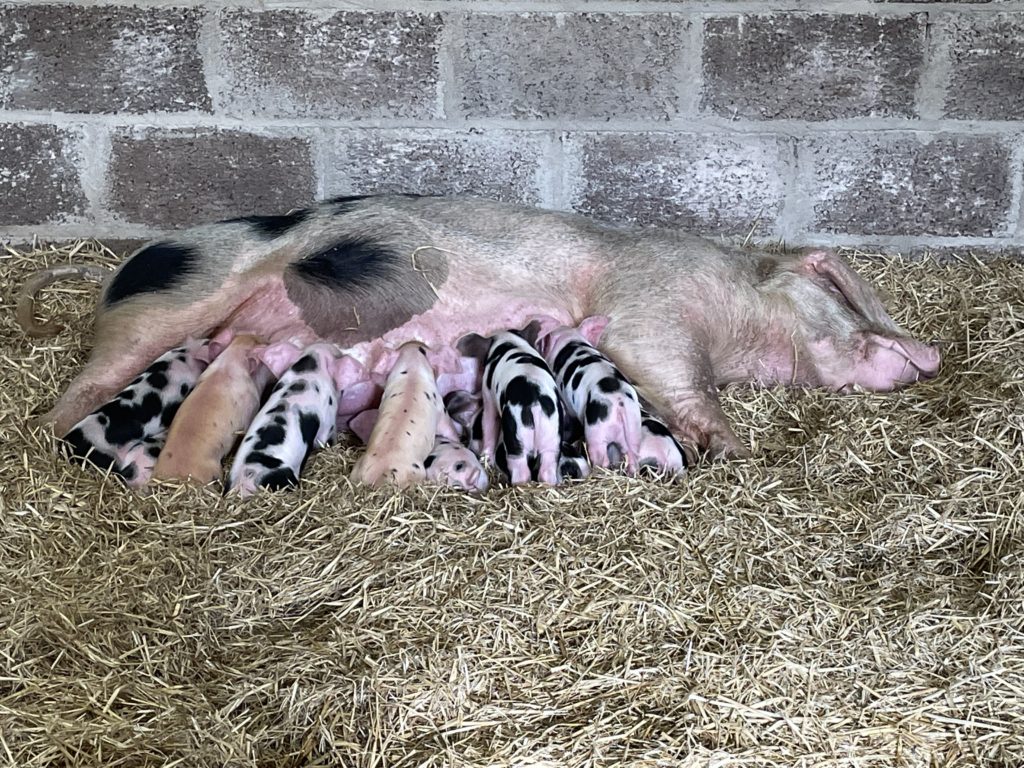
Amanda jokes: “I dreamt of dolphins like most people and ended up trawling up Glasgow’s finest.”
She loves the slow pace of life in Oban, though it took a couple of years to get used to it.
Amanda met her husband, Iain, when she hit a spot of car trouble. “I had a little Fiat 126 with a hole in the floor with a piece of wood covering it, so I went to his garage and asked him to weld it.”
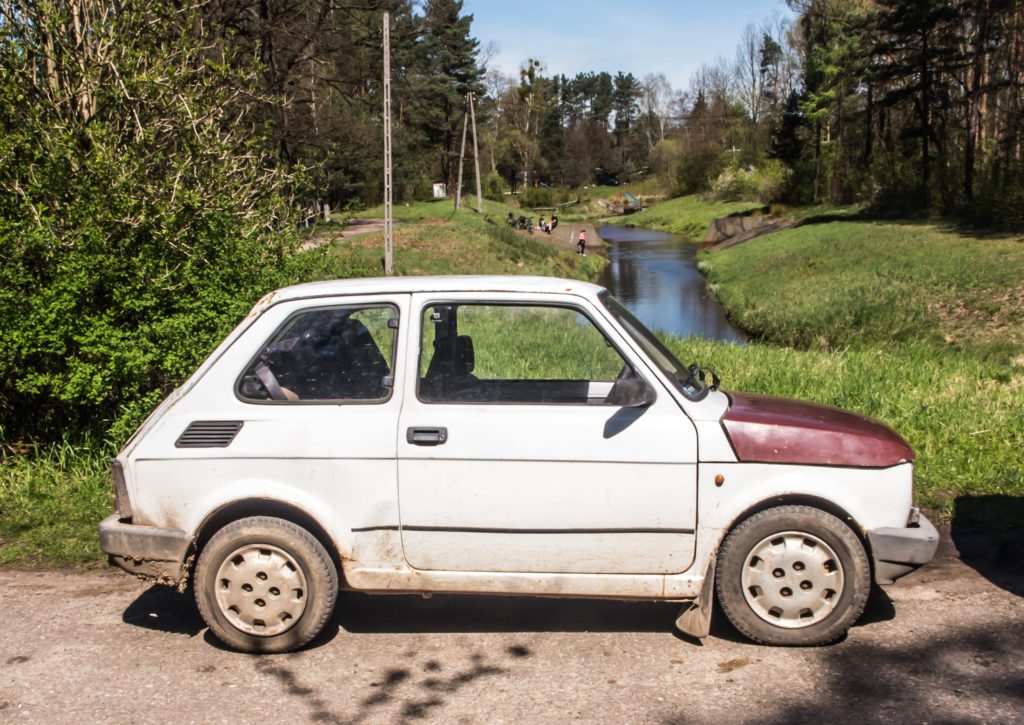
He advised her that a new car might be a better idea, and, after giving her a very favourable deal, joked she should buy him a drink as a thank you.
When she offered “he went as white as a sheet because he wasn’t expecting it”. It’s the couple’s 30th wedding anniversary this year.
She worked as a marine biologist in Oban for 20 years, but around 11 years ago the couple bought a plot to build their dream home, which came with 15 acres of land.
“I always thought it would be nice to have a couple of animals.” First on the shopping list was a couple of Ryeland sheep, to act as lawn mowers, and some hens for eggs.
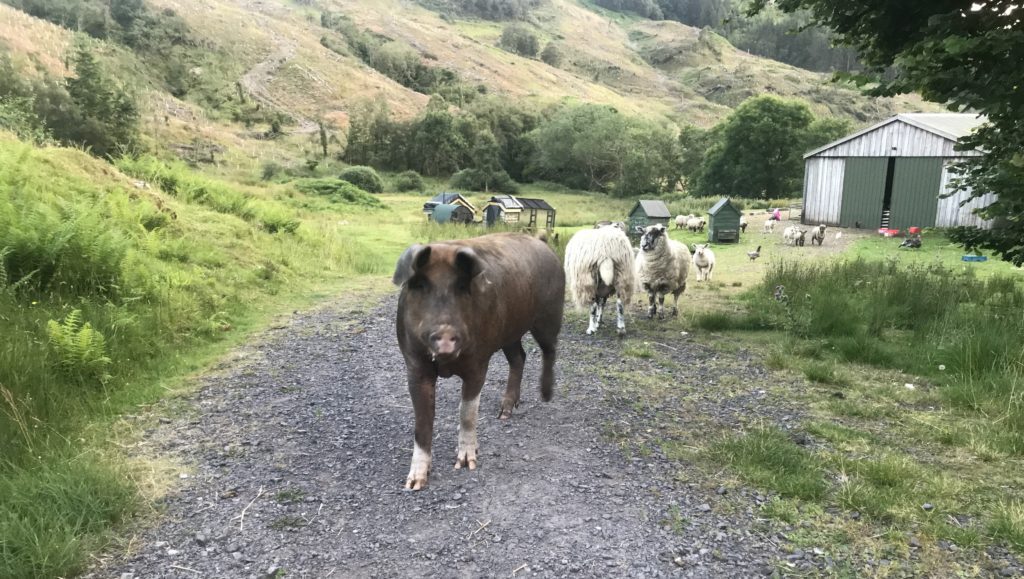
Ryeland sheep are a traditional breed with fluffy faces which are quite good for beginners because they are very docile and easy to handle.
Although she had no prior livestock handling experience it turns out Ryeland sheep will do anything for food. “You don’t need a sheepdog, you just need to shake a bucket and they follow you,” she says.
Her flock of 30 are a slow-growing breed which produce hogget meat.
One of the reasons they started crofting was to provide meat for their family. “We always made meals from scratch and it was important to me that our three boys got good quality food.
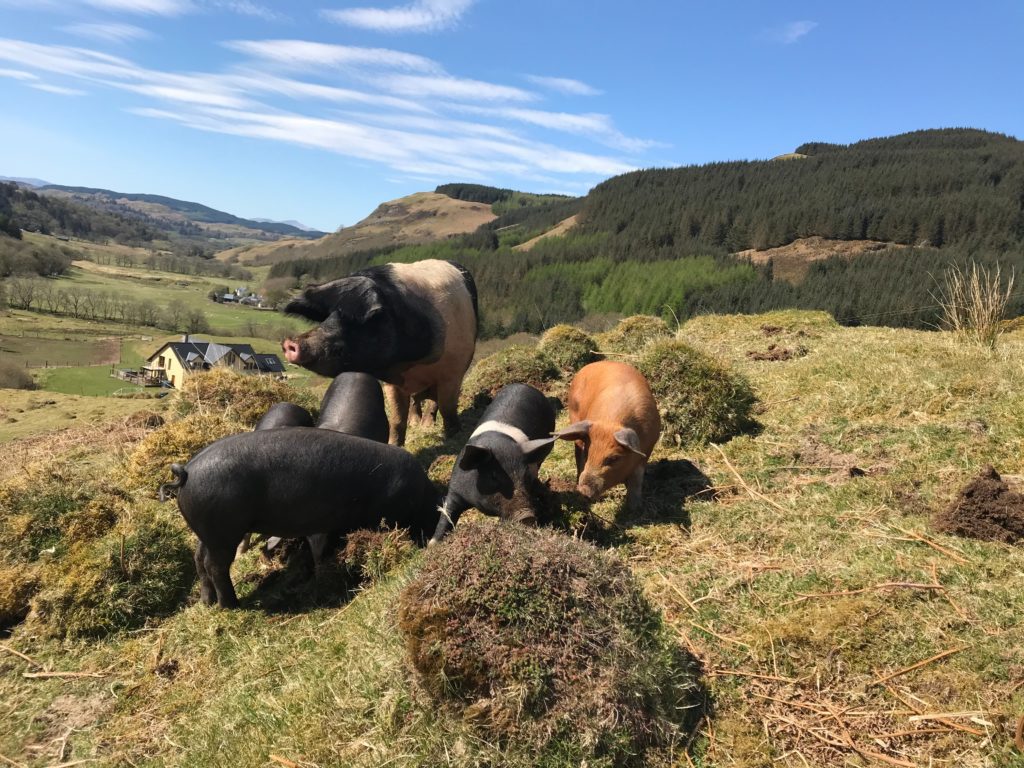
I’d always loved pigs so I thought I’d get a couple of piglets from the local farm – we all love our bacon sandwiches. I remember when my first lot of meat came back, and thinking, ‘My goodness that is bright red,’ because I was used to pork from a supermarket which is pale. But you can taste the difference.”
She had always considered breeding pigs but thought it rather daunting. Then, having been made redundant, she decided to go for it on a small scale.
Her first boar was called Major, who was both friendly and easy to handle – she says: “You don’t want an aggressive boar because they get pretty big.” Major, half Oxford/Sandy Black and half Saddleback, died recently.
Their first sow was Matilda, who is now nine. Although Matilda retired from breeding, she still has a role to play: “When I wean the piglets from their mother, they go to her and she acts as an aunt. She has a lovely temperament, but she can be a bit stand-off-ish.”
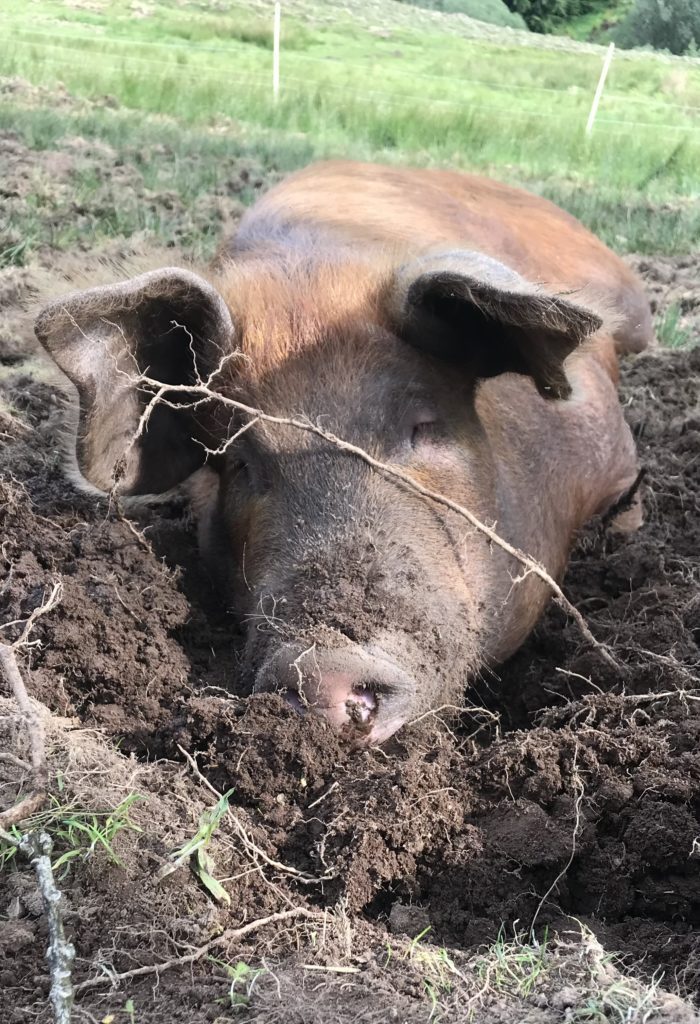
Amanda’s current breeding boar is called Boris, named after the Prime Minister. “He has a tuft of hair and he is a ginger pig so Boris just came to mind, and he is a big softy.”
He is the son of the original Major and has inherited his good temperament. Boris currently has two pedigree wives: Pip, a Gloucester Old Spot and a Saddleback called Nellie and he is also a father – Nellie has just had ten piglets and Pip is due soon.
The piglets stay with their mum for around eight weeks before moving out into rough pasture on the hillside. Amanda says pigs are easier to keep than sheep: “Touch wood, they have been really healthy and I haven’t had any major problems.”
Although her sows are pedigree, she doesn’t show them: “I’m not brave enough to go in a show ring with a pig. I can imagine my pigs would be running out of the ring and knocking stalls down.”
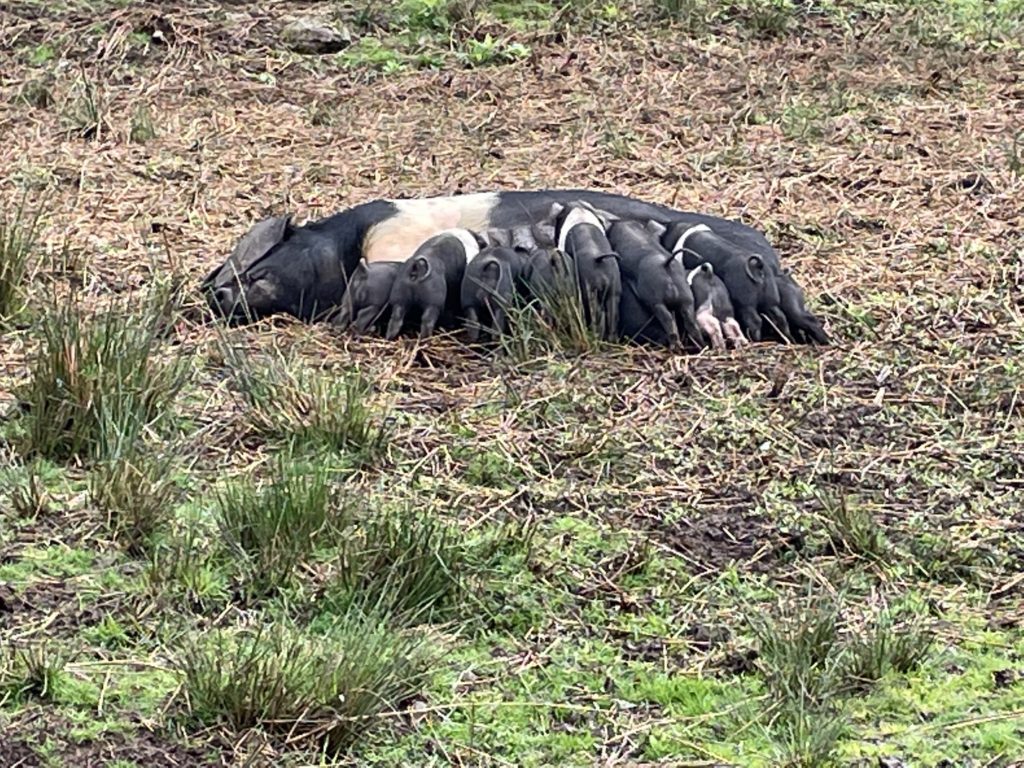
She normally gets three pigs slaughtered at a time, and then freezes the meat before selling via the Oban Food Hub.
The Hub is an online forum where producers from the area each have their own webpage where customers can buy what they want. It is updated each Wednesday and the customers collect the purchased goods the following week, from the community centre in Oban.
High on Amanda’s agenda is animal welfare: “We don’t use any antibiotics. I really like my customers to know how my pigs live.
Born on the farm, they are allowed to be pigs so they dig and eat grubs and roots. I just want to give people the whole picture.” To do that, she encourages her customers to visit the croft to make that link between what you eat and where your food comes from.
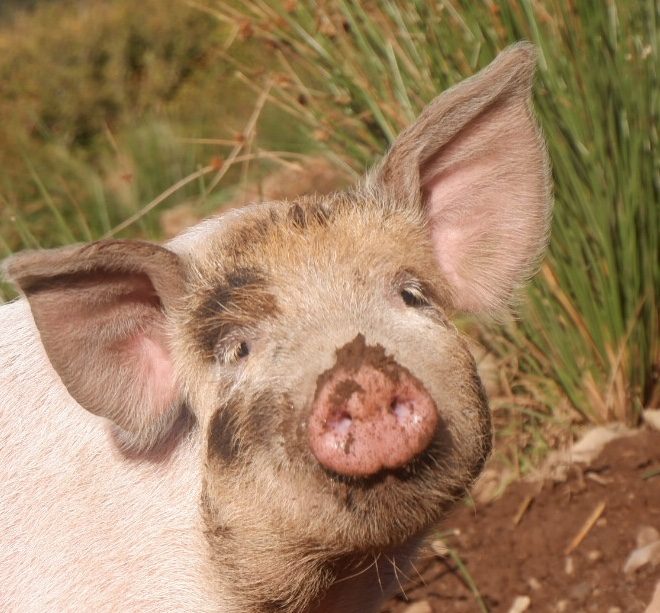
The best-selling products are sausages, bacon and pork joints. They specialise in sausages with flavours including traditional pork, French herbs and garlic, chill and garlic, Cumberland, Lincolnshire, Welsh dragon, which is chilli and leek and the newest flavour, Italian seasonings and herbs – “they sell really well, people like to try different things”.
All her pigs are culled slaughtered and butchered nearby on the Island of Mull. She says: “They go on a ferry for their last and only journey of their lives. If you care about the pigs, then the last thing you want is their final 30 minutes to be stressful.”
She has loyal local customers and sells to a few shops, cafés and restaurants, but as she is a small-scale producer it tends to be smaller businesses who will put her pork on their specials menus.
Christmas is a big time of year: “You need to save up your pig legs throughout the year and get them all cured into gammon.”
Her latest piggy plan is to make pork pies to add to her existing range of sausage rolls, and sausage and egg pies.
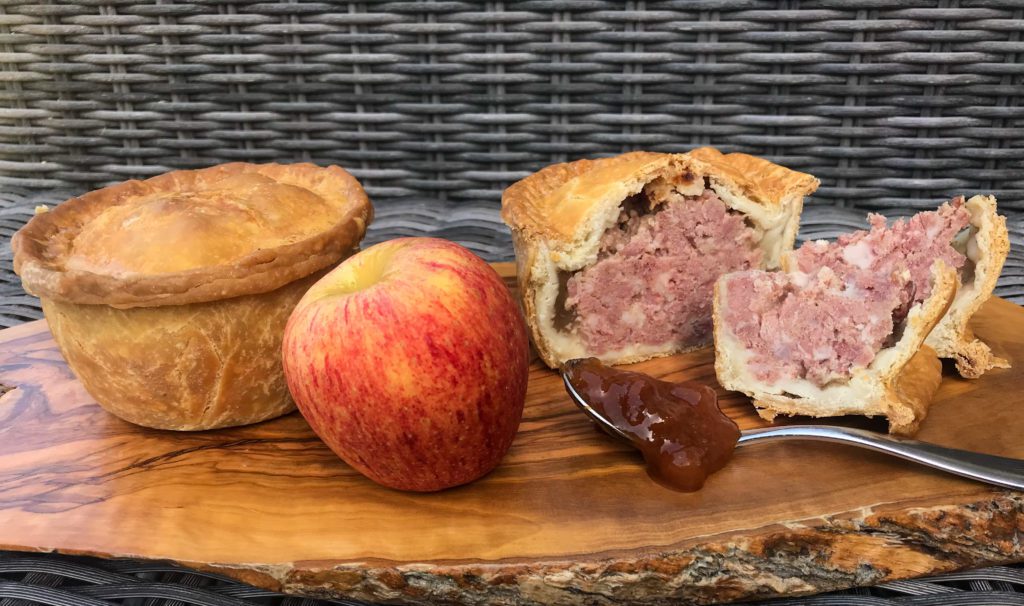
The piglets don’t get named because saying goodbye to them is hard, she admits. “I don’t like seeing them go and it doesn’t really get any better. The first time was horrific, and I didn’t actually go the first time, my husband took them.”
When that meat came back it was hard to eat, she admits. “I reminded myself why I’m doing it – if I want to eat high-quality bacon and pork, I know where it comes from, that it has had a natural and good life so eating it is not an issue any more.” The night before, their ears need to be tagged and she says: “That is the worst. I still get butterflies knowing I’m going to have to load them into the trailer in the morning, although I do go with them to the abattoir now.”
During lockdown her meat was going out the door at a phenomenal rate so she has upscaled this year, producing 16 pigs to be culled, the most ever.
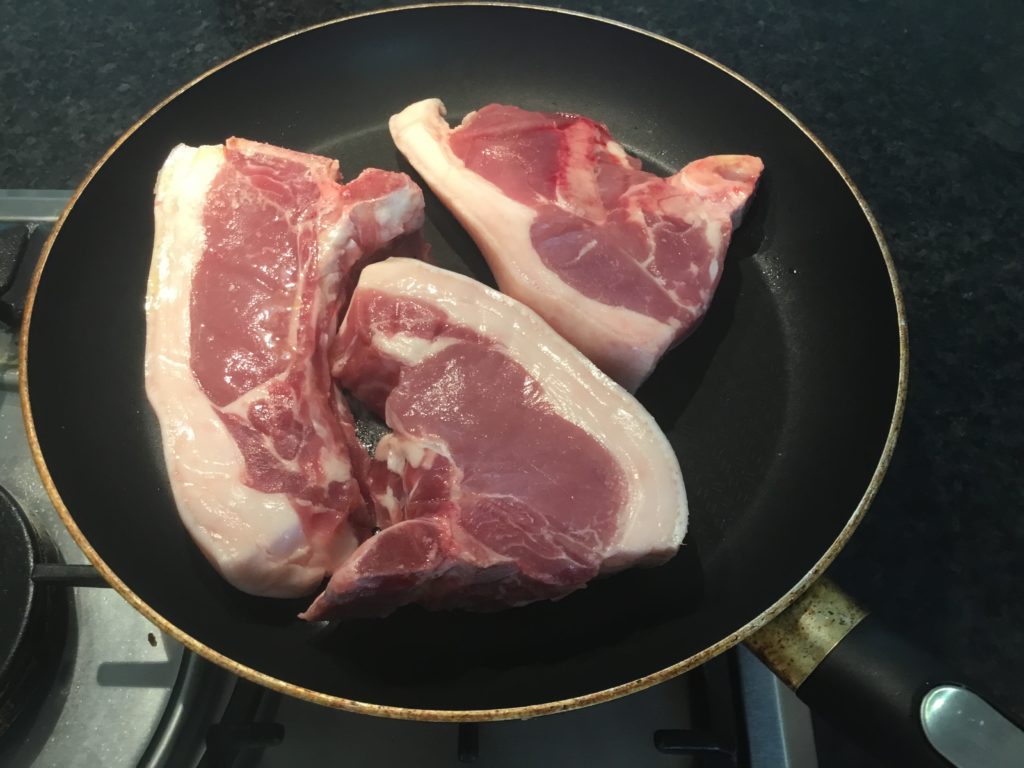
Demand remains high, though “local produce tends to be a bit more expensive compared to the supermarket”. Fortunately her customers are interested in where their food is coming from and the welfare of the animals.
The downside to any type of farming, is that you have to be there seven days a week. Although she loved working in the marine lab, she says: “I don’t miss my old job at all. I just love my new way of life. I talk to the pigs and as long as you have a bucket of food they will listen to you.”
